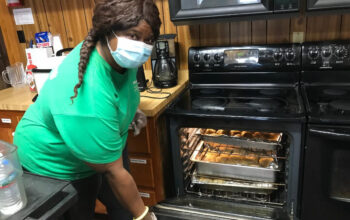by Timothy Achan Gates, Covington Weekly Correspondent
Recently, the controversial issue of hydraulic fracturing has spawned a public relations campaign to soften the issue. The initial response has been analyzed, and the current effort is to marginalize the opposition and present distorted information that minimalizes or eliminates the concerns addressed. Here are some examples of PR techniques applied.
An Example Of Misinformation In A Public Relations Campaign
The Helis Oil and Gas Company’s Facebook page, St. Tammany Energy Project, contains a post of an article from NPR titled “Rediscovering Natural Gas By Hitting Rock Bottom“. The article describes the process of hydraulic fracturing as a promising method of extracting gas from shale. Unfortunately for St. Tammany Energy Project, the article is dated from September 22, 2009. Examining what NPR is currently reporting on, as in the current year of 2014, will show that the pro-oil town Denton, Texas is considering a complete moratorium on hydraulic fracturing. This illustrates the use of misinformation simply by using older, outdated information from a reputable source, refuted by its own reporting years later.
An Example Of Disinformation In A Public Relations Campaign
“One hundred percent, fracking is safe,” declared Chris Faulkner, oil industry expert and CEO of Breitling Energy, on WWL TV. There is very little industry, much less fracking operations, that can truthfully be called 100% safe. Covington’s own Dr. Jay Saux, an oncologist based in St. Tammany Parish, issued a list of the 25 most toxic of more than 750 chemicals used in fracking fluid. A secondary list contains 34 toxic substances detected in water where fracking and shale development has occurred. Current reports indicate that oilfield deaths have risen with the proliferation of fracking, and well worker deaths have occurred simply from exposure to fracking fluids. This blatant example of disinformation is irresponsible to those concerned for their safety and the safety of their families. It is disrespectful to those who have been injured, lost lives or otherwise negatively effected by these operations, which are clearly not 100% safe.
Timothy Achan Gates is a local musician and writer. Contact by phone is 985-288-9609 or e-mail at codexproventus@gmail.com
Sources:
NPR.org – Why a Texas City May Ban Fracking
St. Tammany Dr. Jay Saux Commentary on Fracking
NPR.org – On-The-Job Deaths Spiking As Oil Drilling Quickly Expands
Bloomberg.com – Oilfield Deaths Spur Safety Agency to Study Fracking
Cornell study – Hydrofracking Killing Farm Animals



